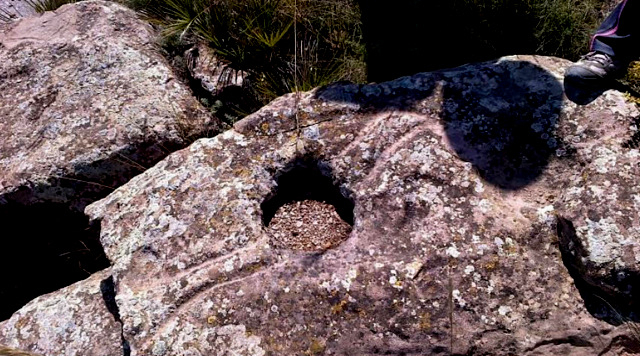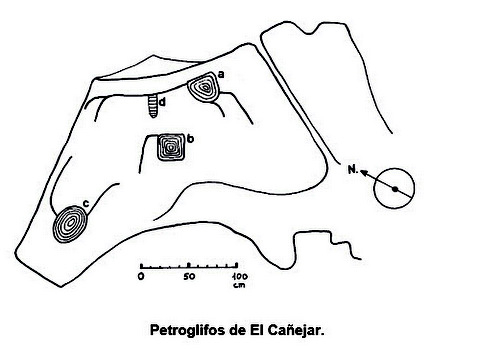- Region
- Vega baja
- Marina Alta
- Marina Baixa
- Alicante
- Baix Vinalopo
- Alto & Mitja Vinalopo
-
ALL TOWNS
- ALICANTE TOWNS
- Albatera
- Alfaz Del Pi
- Alicante City
- Alcoy
- Almoradi
- Benitatxell
- Bigastro
- Benferri
- Benidorm
- Calosa de Segura
- Calpe
- Catral
- Costa Blanca
- Cox
- Daya Vieja
- Denia
- Elche
- Elda
- Granja de Rocamora
- Guardamar del Segura
- Jacarilla
- Los Montesinos
- Orihuela
- Pedreguer
- Pilar de Horadada
- Playa Flamenca
- Quesada
- Rafal
- Redovan
- Rojales
- San Isidro
- Torrevieja
- Comunidad Valenciana
Uncovering Murcia: Mysterious petroglyphs in regional park of El Valle y Carrascoy
What were our Prehistoric ancestors trying to communicate?
This interesting piece of text has been translated from a monthly bulletin produced by the regional parks department and discusses strange indentations in the rocks of the El Valle y Carrascoy regional park on the outskirts of Murcia. The park has its own visitor centre and staff will be happy to help identify the peaks involved for any diehard walkers or anyone with a particular interest in the subject.( Click El Valle)

For a long time one of the mysteries contained within the El Valle y Carrascoy regional park in the mountains to the south of the city of Murcia has been the origin of a series of strange indentations in the rocks near the peaks of Quijar de la Vieja, Cerro Pascual del Garruchal and Los Cerrillares del Valle.
Some people maintained that these shapes could have been made either by wind and water erosion or by human beings, but it has now been ascertained by researchers that they are definitely the work of prehistoric human minds and hands, and can be classed as petroglyphs. Similar inscriptions have been found in rocks all over the world, but as yet no-one has managed to decipher what they might mean.
The three carvings found in El Valle y Carrascoy are all aligned on an east-west axis over a distance of no more than 150 metres, and it has now been established that they date from between 5,000 and 3,700 years ago. In other words, they belong to the transition period between the late Neolithic (or New Stone Age) and the early Chalcolithic (or Bronze Age).
The inscriptions consist of geometrically shaped holes in the rock surface, such as pentagons, squares,  circles, rectangles and ovals, joined to one another by small channels.
circles, rectangles and ovals, joined to one another by small channels.
They can be visited by any walkers keen to have a look at them and attempt to guess what they might indicate: some of the theories which have been put forward include the possibility that they may be a map of nearby freshwater springs, water collection devices used by shepherds and cattle in summer, maps of the terrain over which guards watched from the top of the mountains, a map of the mountain paths, mystical places used in funeral rites or even primitive astronomical charts.
None of these theories has yet been confirmed but each has its supporters, and no doubt the continuing mystery is one which adds a certain allure to the regional park which lies just a few kilometres outside the city of Murcia.
Thousands of years ago, somebody must have had a reason for taking the time and trouble to create these designs on the rocks at the top of the Sierra de Carrascoy, but in the third millennium AD we are at a loss to know what that reason might have been.
Credit: Original text source : Revista Verdolay:”Los petroglifos del Parque Regional de El Valle Murcia”, Museo Arqueológico de Murcia 2009


